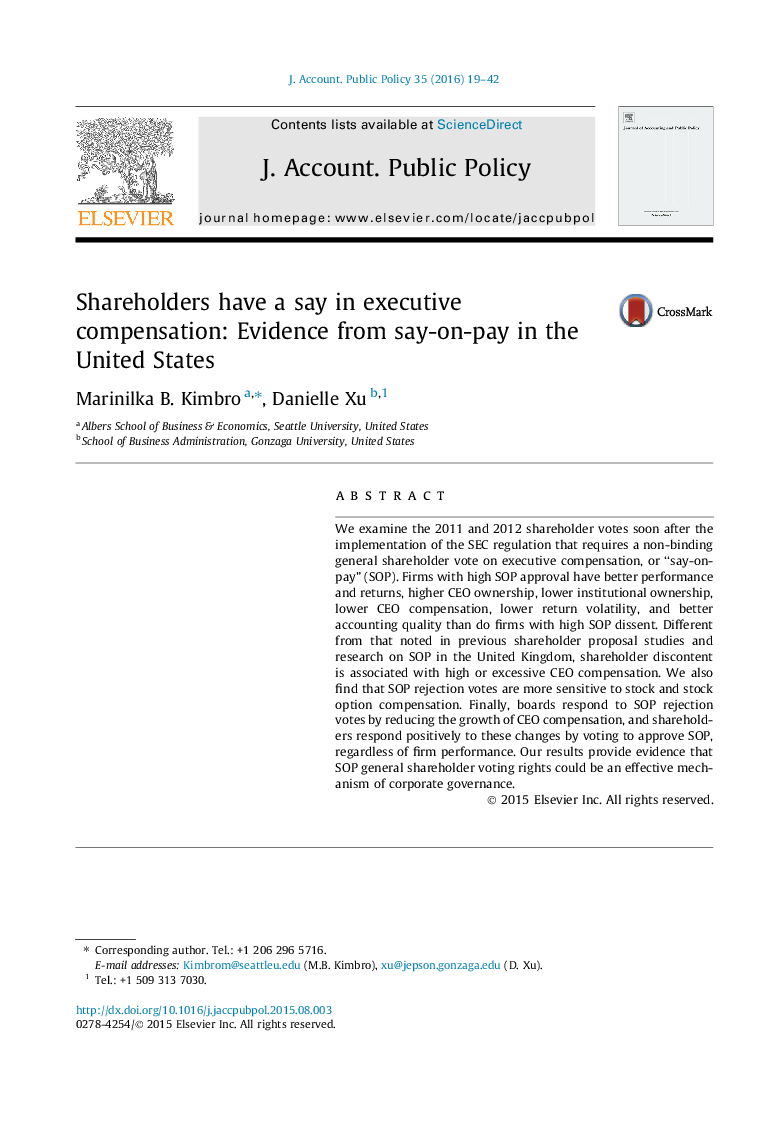| Article ID | Journal | Published Year | Pages | File Type |
|---|---|---|---|---|
| 1005737 | Journal of Accounting and Public Policy | 2016 | 24 Pages |
We examine the 2011 and 2012 shareholder votes soon after the implementation of the SEC regulation that requires a non-binding general shareholder vote on executive compensation, or “say-on-pay” (SOP). Firms with high SOP approval have better performance and returns, higher CEO ownership, lower institutional ownership, lower CEO compensation, lower return volatility, and better accounting quality than do firms with high SOP dissent. Different from that noted in previous shareholder proposal studies and research on SOP in the United Kingdom, shareholder discontent is associated with high or excessive CEO compensation. We also find that SOP rejection votes are more sensitive to stock and stock option compensation. Finally, boards respond to SOP rejection votes by reducing the growth of CEO compensation, and shareholders respond positively to these changes by voting to approve SOP, regardless of firm performance. Our results provide evidence that SOP general shareholder voting rights could be an effective mechanism of corporate governance.
